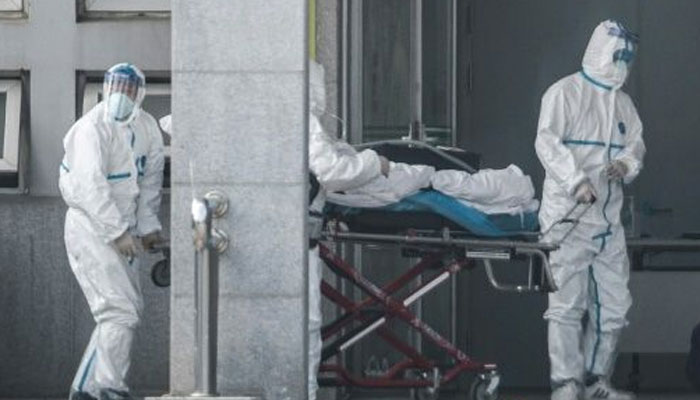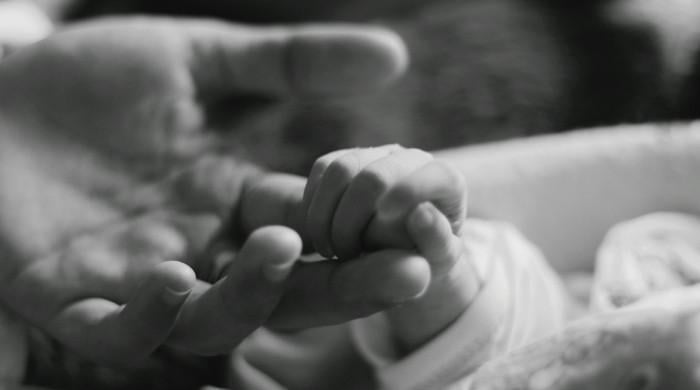China virus claimed to be linked to bat soup
China put millions of people on lockdown in two cities at the epicenter of a coronavirus outbreak that has killed 17 people
January 24, 2020

BEIJING: China virus, which has already claimed at least 17 lives in the city of Wuhan - which has since been put in lockdown, is feared to have spread to humans from bat soup.
China put millions of people on lockdown in two cities at the epicenter of a coronavirus outbreak that has so far infected more than 630, as authorities around the world worked to prevent a global pandemic.
Health officials fear the transmission rate will accelerate as hundreds of millions of Chinese travel at home and abroad during the week-long holidays for the Lunar New Year, which begins on Saturday.
The previously unknown virus strain is believed to have emerged late last year from illegally traded wildlife at an animal market in the central Chinese city of Wuhan, reports the international media.
Also read: Pakistan starts screening of passengers from China
Most transport in Wuhan, a city of 11 million people, was suspended on Thursday and people were told not to leave. Hourslater, neighboring Huanggang, a city of about 7 million people, announced a similar lockdown.
“The lockdown of 11 million people is unprecedented in public health history,” Gauden Galea, the World Health Organization’s (WHO) representative in Beijing, said. Other cities were also taking steps to restrict movement and contact.
Nearby Ezhou shut train stations. China’s Education Ministry said schools should not hold large events or exams. The capital canceled major public events, including two Lunar New Year temple fairs, the state-run Beijing News said.
Airports worldwide were screening passengers arriving from China. Hong Kong, which has two confirmed cases, is turning two holiday camps into quarantine stations as a precaution. Taiwan has banned anyone from Wuhan from going to the island.
Read more: These tips can help you avoid the Coronavirus
Chinese people had their own ways of protecting themselves. “I go straight to where I need to go, and then I go home,” said 79-year-old Li Meihua, from behind a mask, on the streets of Shanghai. “My nose is a bit runny already. I’m also maintaining a cleaner diet, I’ve turned vegetarian now.”
There is no vaccine for the virus, which can spread through respiratory transmission. Symptoms include fever, difficulty in breathing and cough, similar to many other respiratory illnesses.
Preliminary research suggested it was passed on to humans from snakes, but government medical adviser Zhong Nanshan has also identified badgers and rats as possible sources. Experts have warned the virus could as deadly as the post WWI Spanish flu which killed millions.
UK experts have said they believe the virus could already be in the UK. Latest analysis by Chinese scientists suggests virus passed from bats to snakes then humans. Bat soup is reported to be an unusual but popular dish particularly in Wuhan, where the virus is understood to have originated at an open air fish market.
Unconfirmed footage posted on social media show people eating soup from a bowl with a grinning dead bat on the side.
Another image appears to show a dead bat with its stomach removed and filled with a broth. A new study published in the China Science Bulletin earlier this week claimed that the new coronavirus shared a strain of virus found in bats.
Previous deadly outbreaks of SARS and Ebola were also believed to have originated in the flying mammal. Experts had thought the new virus wasn't capable of causing an epidemic as serious as those outbreaks because its genes were different.
The WHO will decide on Thursday whether to declare the outbreak a global health emergency, which would step up the international response. If it does so, it will be the sixth international public health emergency to be declared in the last decade. Its Emergency Committee meeting was under way in Geneva and a news conference was expected after 1800 GMT.
Some experts believe the virus is not as dangerous as previous coronaviruses such as Severe Acute Respiratory Syndrome (SARS) and Middle East Respiratory Syndrome.
“The early evidence at this stage would suggest it’s not as severe,” Australia’s Chief Medical Officer Brendan Murphy said.
Giving the latest details on infections in China, state television said 634 cases had been confirmed. By the end of Wednesday, China’s National Health Commission confirmed 17 dead.
Of the known cases worldwide, Thailand has confirmed four, while Singapore, Japan, South Korea, Taiwan and the United States have reported one each.
Imperial College London said on Wednesday it estimated a total of 4,000 cases in Wuhan alone as of Jan. 18, based on the number of cases reported in China and elsewhere.
To try to stem the outbreak, Wuhan shut down all urban transport networks and suspended outgoing flights from 10 a.m. (0200 GMT). Domestic media said some airlines were operating after the deadline, however.
Its Hankou rail station was nearly deserted, state broadcasts showed. State media reported highway toll booths around Wuhan were closing, effectively cutting off road exits. Guards were patrolling highways.
As the city slipped into isolation, residents thronged into hospitals for checks and scrambled for supplies, clearing out supermarket shelves and queuing for petrol.
Despite China’s response, world shares fell on Thursday, led by the biggest tumble in Chinese stocks in more than eight months, as concern mounted about the outbreak.
“Ultimately, the coronavirus is a slow-burning but important story for markets that is likely to last for months rather than just a few days,” said TD Securities’ European head of currency strategy, Ned Rumpeltin.
The economic impact of such outbreaks are hard to quantify but a 2006 estimate by the International Air Transport Association (IATA) calculated that SARS shaved just over 1 percentage point off the GDP of China in 2003.
Many Chinese were cancelling trips, buying face masks and avoiding shopping centers. The release of seven Chinese movies over the Lunar New Year has been postponed.











